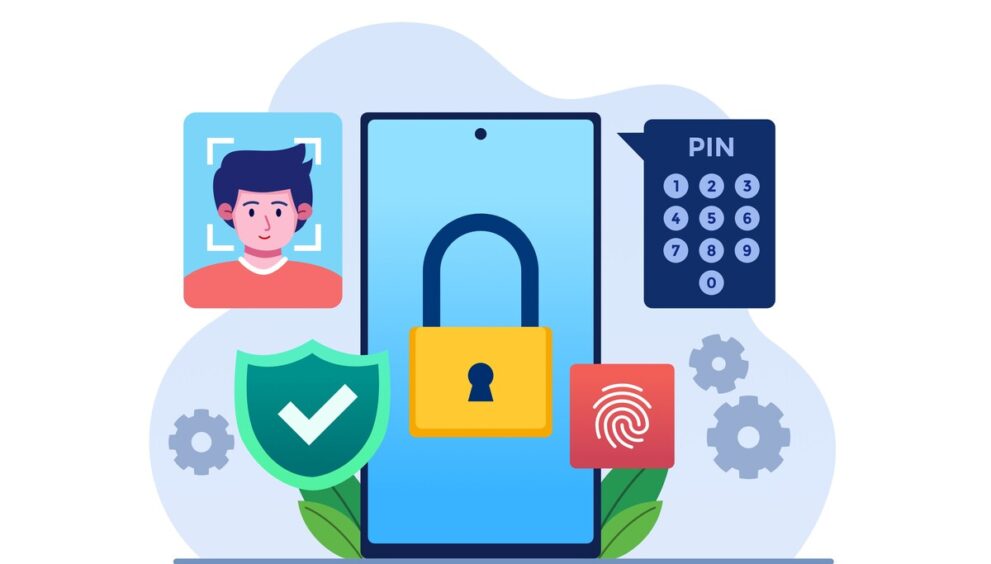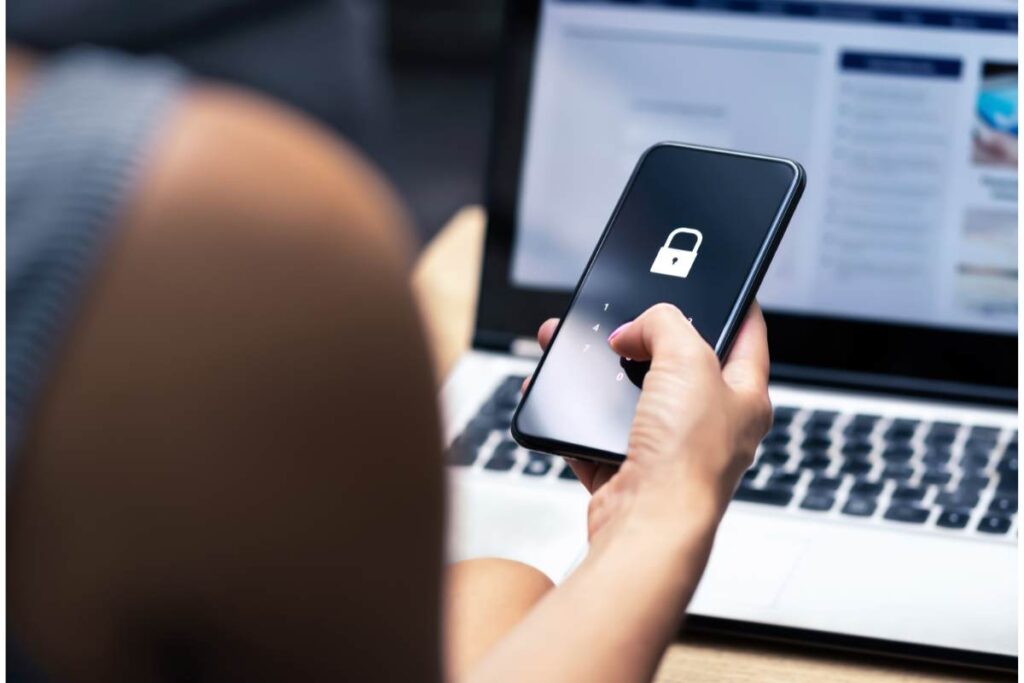Mobile Security Tips to Safeguard Your Devices and Data

Keeping your software updated is one of the most essential pieces of mobile security advice. It will ensure you receive the newest features and bug fixes and are protected from new security risks.
There are several methods for updating your software. To start, you can configure your device to download updates automatically. Since you don’t need to remember to check for and apply updates manually, this is typically the simplest choice.
The second option is to check for updates manually. To accomplish this, you must go to your device’s settings and search for the “Software Updates” or “System Updates” option. Once you’ve located it, you may search for and apply any readily available updates.
Third, you can set up updates from your carrier or manufacturer. Typically, you only need to do this if you’re running an outdated version of Android or a custom ROM. It would help if you located the “Firmware Updates” or “OTA Updates” option in your device’s settings to accomplish this. Once you’ve located it, you may search for and apply any readily available updates.
Finally, you can put in updates from dependable outside sources. You only need to do this if you use an outdated Android version or a custom ROM. It would help if you located the “Third-Party Updates” or “Alternate Updates” option in your device’s settings to accomplish this. Once you’ve located it, you may search for and apply any readily available updates.
Always remember only to install updates from reputable sources. Updates from shady sources should never be installed since they could infect your device with malware.
In conclusion, updating your software is one of the most crucial mobile security recommendations. The simplest way to accomplish this is to set your device to install updates automatically. However, there are other options.
Put a secure lock screen to use.
Most people know they should protect their devices using a password or PIN. However, did you know that some are safer?
Here are some pointers for selecting a safe lock screen for your smartphone:
- Use a PIN or password. The most fundamental form of security is also its most potent counterpart. If your smartphone is lost or stolen, a strong password or PIN will make it far more difficult for someone to access it.
- Use a biometric lock, please. A more recent option unlocks your device using your fingerprint or iris. Because it’s considerably more difficult to mimic your fingerprint or iris, it’s more secure than a password or PIN.
- Use a pattern lock, third. To unlock your smartphone, you must draw a pattern. It is a more visual kind of security. It is more secure than nothing but not as secure as a password or PIN.
- Use a hardware lock, number 4. Although this type of protection is the most effective, it is also cumbersome. To unlock a hardware lock, you need to physically attach your device to a security tool, like a keychain or USB drive.
- Use an application lock. Although it is less reliable than a physical lock, this security is more practical. You can unlock your smartphone with a software lock using a password or PIN and a pattern or biometric lock.
- Combine a few of these techniques. Utilizing a mix of these techniques is the safest choice. For instance, you may use a password or PIN to unlock your smartphone, but you could also use a pattern or biometric lock.
- Use a security app, please. You can lock your device with the help of one of the various available security apps. Some apps lock it remotely even if your device is lost or stolen.
- Use a security service, please. You can lock your smartphone with a variety of security providers. Even if your device is stolen or lost, some of these services let you remotely lock it.
Apply a VPN
Virtual Private Networks, or VPNs, are private networks that connect to public networks like the Internet. Remote employees can safely access a company network from a distance using VPNs.
A VPN can be set up in a few different ways, but most businesses use a VPN gateway, a piece of hardware that connects to the Internet and directs traffic through the VPN. Before delivering traffic over the Internet, the gateway authenticates each user and encrypts it.
You will typically be given a choice of server locations when you connect to a VPN. It is because the VPN will direct your traffic through that server, creating the impression that you are physically present there. If you want to access content only accessible in particular nations or browse the Internet privately, this can be helpful.
VPNs can also help you maintain your privacy. Your traffic is encrypted when you connect to a VPN, making it impossible for your ISP (or anybody else) to know what you are doing online. It is crucial if you’re worried about the government spying on you or your ISP tracking your online behavior.

Avoid Downloading Applications from Unknown Sources
The Google Play Store is the recognized official app store for Android devices, as we all know. However, there are instances when we have to get programs from outside sources, either because the app we want isn’t on the Play Store or because we wish to sideload (install) an app.
But not all sources for apps are made equal. Some are outright harmful, while others are more reliable. Therefore, you should exercise caution while downloading programs from sources other than the Google Play Store.
Here are suggestions to keep you safe.
1. Verify the app’s permissions
You may see a list of an app’s permissions when you install it from the Play Store. You can see what the app can do on your device from this.
You won’t be able to see these permissions if you sideload a program. Check the app’s website or support forums to see what permissions it needs before installing. Compare that to the real permissions the program is requesting after that. Install the app only if the two match.
2. Steer clear of third-party app stores
Although many third-party app shops are available, not all are secure. In actuality, some of them are merely malware fronts. So be sure to pick a trusted third-party store if you plan to download an app from one.
The F-Droid store, the Humble Bundle store, and the Amazon Appstore are a few excellent choices. Even so, you should only download programs from reliable developers.
3. Review and rate products.
Before installing an app that you downloaded from a reliable source, take the time to check reviews and ratings. It can prevent you from downloading a problematic program or failing to deliver on its promises.
4. Make use of two-factor authentication
Use two-factor authentication if an app store offers it. It increases security by another level.
Possess a Plan B
We know we should always have a backup strategy for our crucial data and files. But what happens if our fallback plan doesn’t work? What if, even worse, we have no backup strategy at all?
A few things could happen if we don’t have a backup plan. First, we risk losing all of our crucial information. It might be disastrous, especially if we had used the data for personal or professional purposes. Second, we need a method to restore our data if something goes wrong.
Without a backup strategy, we run the danger of losing our data. What, therefore, can we do to ensure we’re always ready?
Here are ten pointers for developing a trustworthy backup strategy:
- Store numerous copies of your data in various places.
- Store your data off-site by using a cloud backup provider.
- Test your backups frequently to ensure they are operating properly.
- Keep a backup copy of your data on a different hard drive or storage system.
- Use encryption to safeguard your backups against unauthorized access.
- Automate your backup procedure by using a backup schedule application.
- Continue to update your backup software.
- Make a disaster recovery plan in case of data loss.
- Become knowledgeable about data backup best practices for you and your team.
- Have a backup plan with a plan B.
Any company or person relying on data must have a solid backup strategy. You can ensure your data is always secure by following these suggestions.






